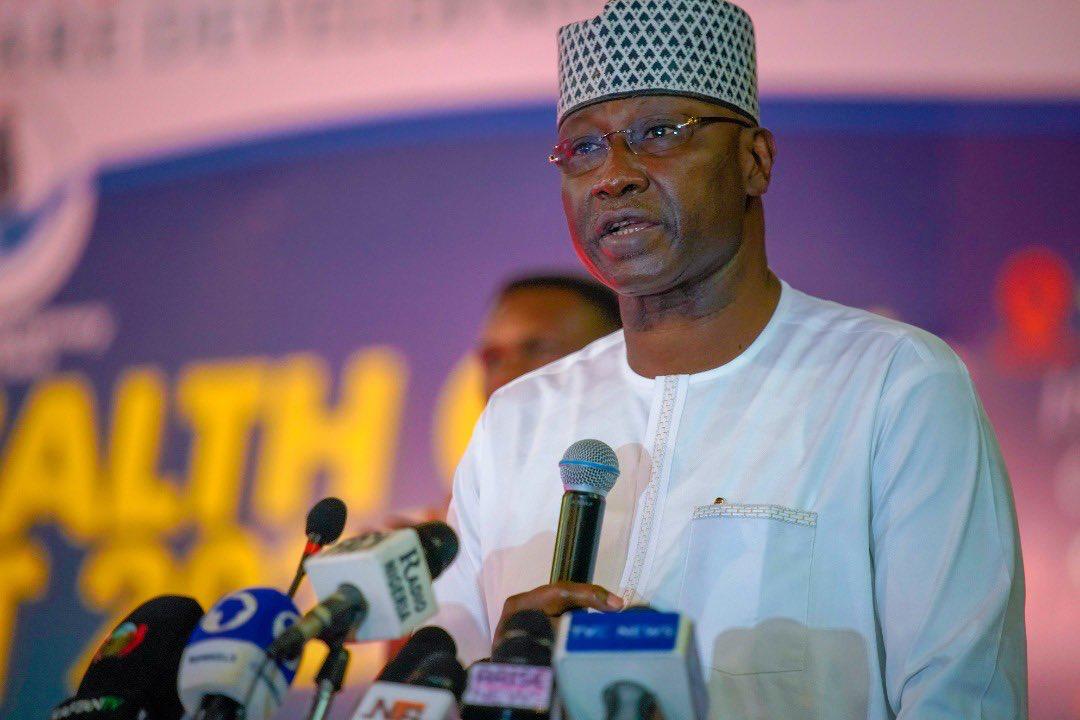By Iyema David
The Secretary to the Government of the Federation (SGF), Mr Boss Mustapha, advised Nigerians that the COVID-19 pandemic is still much around as shown in Nigeria and other countries across the globe and the pattern it will take is hard to predict.
Mustapha, who is also the Chairman Presidential Steering Committee (PSC), on COVID-19, said this during his keynote address on” Safeguarding Nigeria against the COVID-19 pandemic: The Journey so far” at a Two-Day Primary Health Care summit, on Friday in Abuja.
The SGF caution that Nigerians must not let their guard down. Adding that to enable the country to conquer the COVID-19 variants, there had been good progress on the country’s vaccination campaign rates, which have risen and would continue to rise if Nigerians do not avail themselves to be vaccinated.
Mustapha added that amidst the global shortage of the COVID–19 vaccines, the vaccination drive in the country’s progressed in different phases, expanding the eligible target population to include all adults aged 18 years and above.
“Till this day, Nigeria has recorded 255,092 confirmed cases of COVID 19 infection and 3,142 deaths. When compared with global figures, Nigeria has been able to curtail the spread and detrimental effect of this deadly virus despite the overarching challenge of a weakened health system,” he said.
He added that the virus had come with challenges but had given the country an ample opportunity to invest in its health infrastructures.
The SGF noted that on data management, the Electronic Management of Immunization Data (EMID) system had strengthened the country’s ability to collect and manage real-time information on the COVID-19 vaccination coverage.
Senate Committee Chairman on Health, Senator Ibrahim Oloregbe said that Nigeria may not get its healthcare right without addressing the issues of human resources.
He urged all stakeholders that as they talk about health, they must bear in mind that health does work in isolation.
He added that they should also consider other social determinants of health such as education, WASH, and electricity to ensure an effective health care system in the country.
The Minister of Health, Dr Osagie Ehanire, said that the country’s goal
was to achieve Universal Health Coverage (UHC), and it begins with the transformation of the PHC.
“The Federal Government is looking at what works for Nigerians of all ages, wealth, and backgrounds. To prevent leakages, we must implement health funding jointly at the federal, state, and local levels.
“We must commit to health-care systems that satisfy the needs of individuals in their communities while also being affordable. The subnational level should shift its focus to investing in primary health care at the grassroot level,” Ehanire stressed.
The minister added that the underperformance of the health sector in the country was not equal to under investment, but the summit aims to address this imbalance and chat the course for more public and private sectors collaborations.
He said that the government want to ensure a health service that meet the needs, of Nigerians as close as possible to where they live, at affordable cost and throughout their life course.
One of the highlights of the two days 2022 PHC summit was that Government, Partners and committed Nigerians signed a pact to re-invest in Primary Health Care through the Re-imagining PHC initiative in Nigeria.
It was reported that only 22 percent of PHC Facilities in Nigeria have the required healthcare workers.
The summit brought together national elected leaders, top government officials, and leading private sector executives to present ambitious and attainable plans that will lead to tangible and largescale changes to Nigeria’s primary health care (PHC) system by the year 2030.


